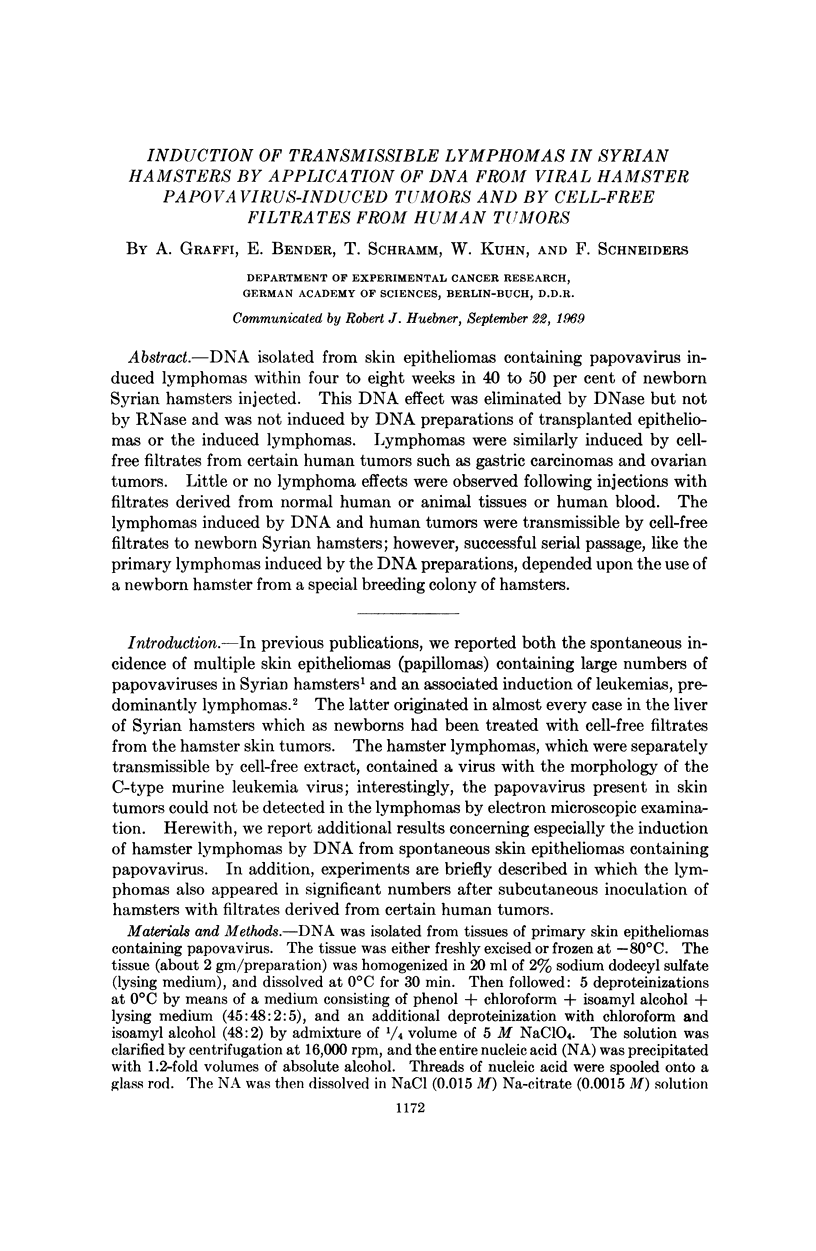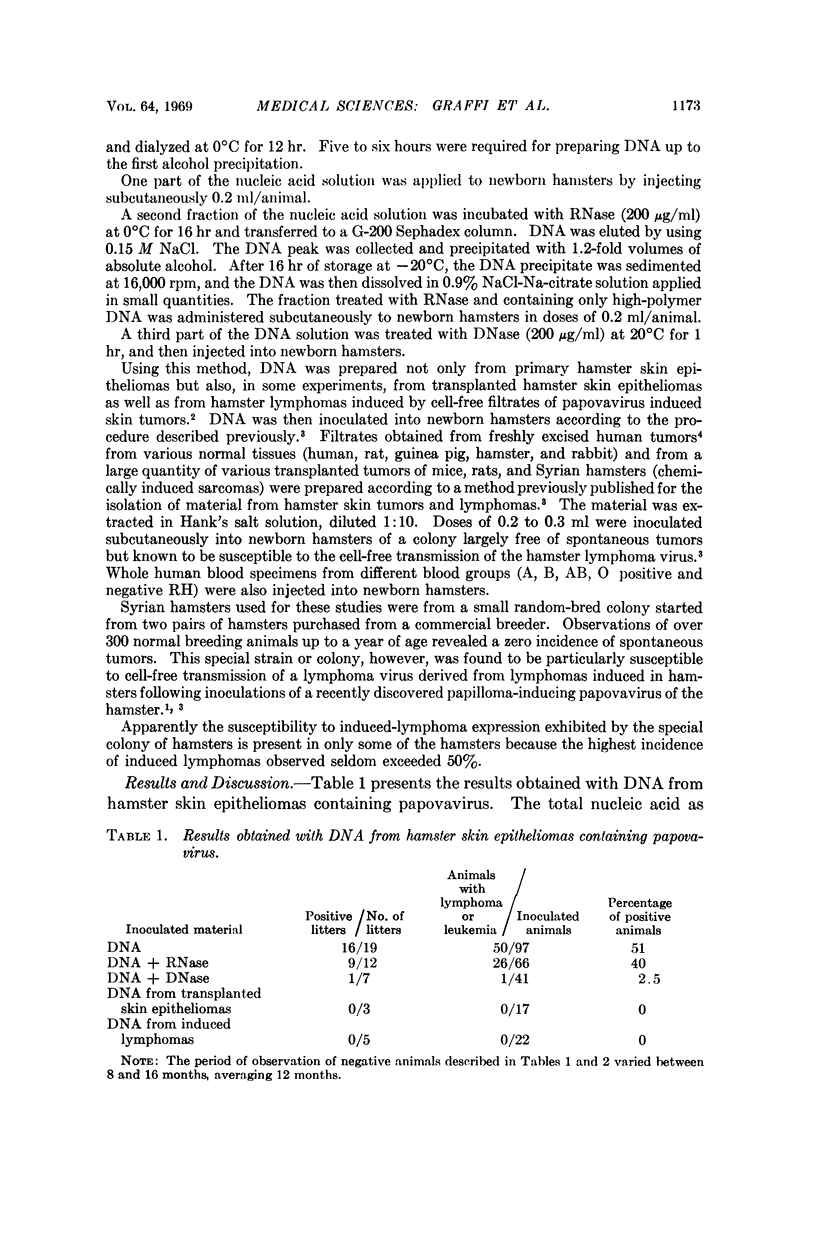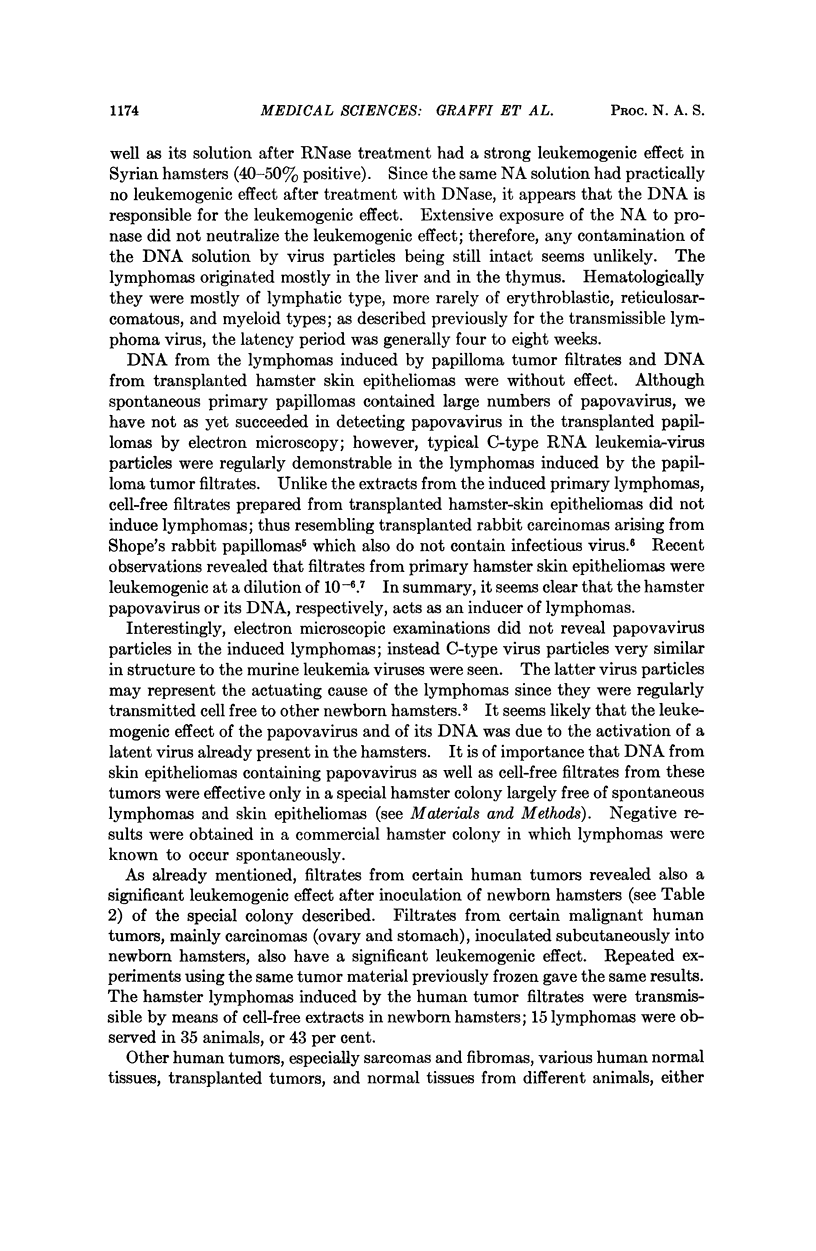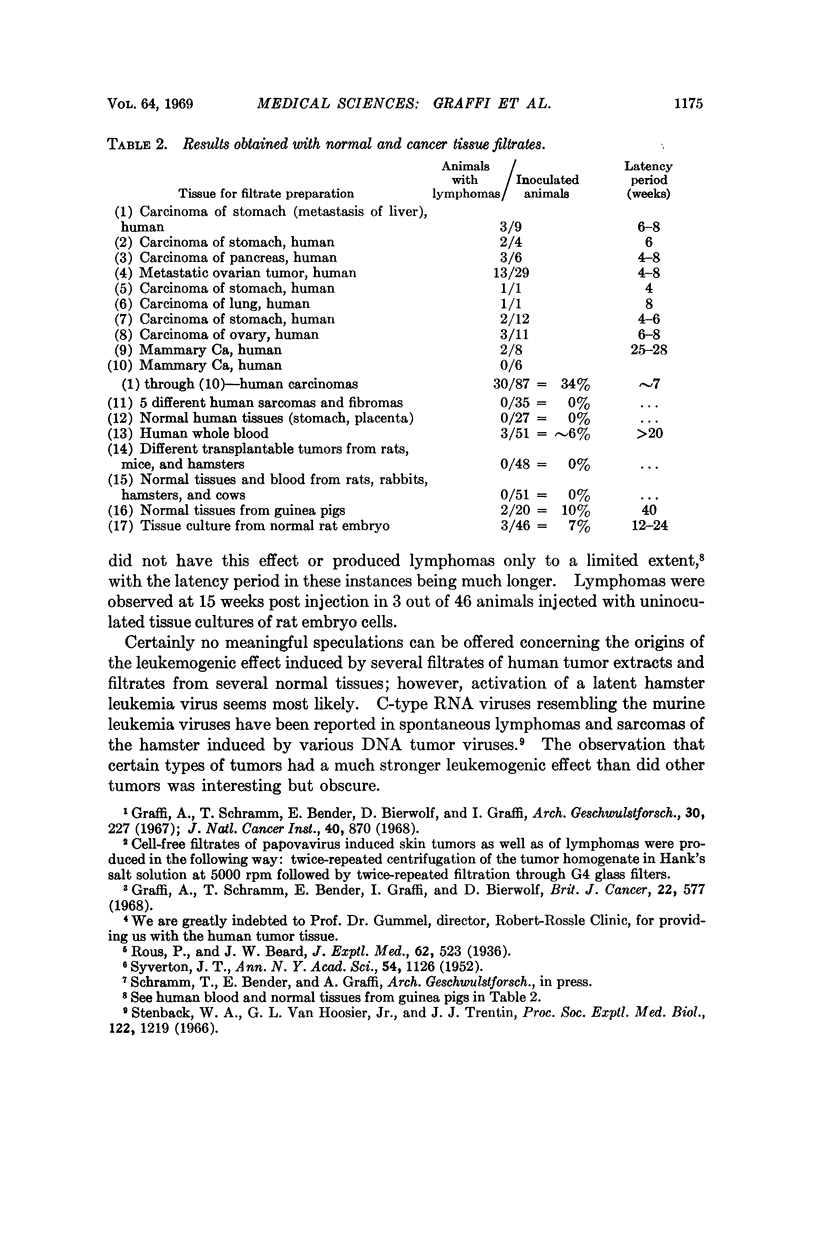Abstract
DNA isolated from skin epitheliomas containing papovavirus induced lymphomas within four to eight weeks in 40 to 50 per cent of newborn Syrian hamsters injected. This DNA effect was eliminated by DNase but not by RNase and was not induced by DNA preparations of transplanted epitheliomas or the induced lymphomas. Lymphomas were similarly induced by cellfree filtrates from certain human tumors such as gastric carcinomas and ovarian tumors. Little or no lymphoma effects were observed following injections with filtrates derived from normal human or animal tissues or human blood. The lymphomas induced by DNA and human tumors were transmissible by cell-free filtrates to newborn Syrian hamsters; however, successful serial passage, like the primary lymphomas induced by the DNA preparations, depended upon the use of a newborn hamster from a special breeding colony of hamsters.
Full text
PDF



Selected References
These references are in PubMed. This may not be the complete list of references from this article.
- Graffi A., Schramm T., Bender E., Graffi I., Horn K. H., Bierwolf D. Cell-free transmissible leukoses in Syrian hamsters, probably of viral aetiology. Br J Cancer. 1968 Sep;22(3):577–581. doi: 10.1038/bjc.1968.68. [DOI] [PMC free article] [PubMed] [Google Scholar]
- SYVERTON J. T. The pathogenesis of the rabbit papilloma-to-carcinoma sequence. Ann N Y Acad Sci. 1952 Jul 10;54(6):1126–1140. doi: 10.1111/j.1749-6632.1952.tb39983.x. [DOI] [PubMed] [Google Scholar]
- Stenback W. A., Van Hoosier G. L., Jr, Trentin J. J. Virus particles in hamster tumors as revealed by electron microscopy. Proc Soc Exp Biol Med. 1966 Aug-Sep;122(4):1219–1223. doi: 10.3181/00379727-122-31365. [DOI] [PubMed] [Google Scholar]


